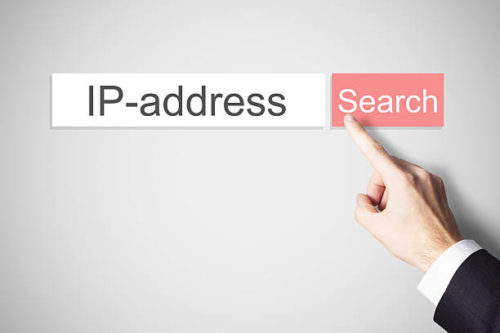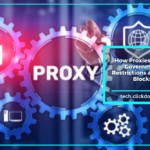In an increasingly interconnected world, the Internet is a critical platform for communication, information sharing, and commerce. However, access to this vast digital landscape is not always free or equal.
Governmental restrictions and geo-blocks—measures taken by governments or online platforms to limit access to certain content based on geographic location—pose significant challenges to users seeking unfettered access to information and services.
Proxies have emerged as a vital tool in overcoming these barriers, enabling users to bypass restrictions and access content freely.
Pain Points Created by Governmental Restrictions and Geo-Blocks
The implementation of governmental restrictions and geo-blocks creates several significant pain points for users. These pain points can have far-reaching implications, both on an individual level and for society as a whole.

While proxies offer a solution to bypass these barriers (check for more), it’s essential to understand the underlying issues they help address.
1. Restricted Access to Information:
One of the most immediate and pervasive pain points is the restricted access to information. Governmental restrictions often prevent users from accessing news sites, social media platforms, or any content deemed inappropriate or harmful by the state.
This limits the flow of information, curtails freedom of expression, and prevents citizens from staying informed about global events. In some cases, these restrictions can be so severe that they create an information vacuum, leaving citizens with access only to state-approved narratives.
Geo-blocks, while typically less severe than governmental restrictions, still limit access to information by preventing users from viewing content that is available in other regions, who often then have to resort to using proxies.
For instance, an academic researcher might be unable to access critical resources that are geo-blocked in their country, or a user might be unable to participate in online communities that are restricted by location.
2. Economic Disadvantages:
Both governmental restrictions and geo-blocks can create economic disadvantages for users. In countries with strict internet controls, businesses may struggle to access global markets, limiting their growth and competitiveness.
Entrepreneurs and freelancers who rely on the internet for work may find themselves unable to access essential tools and platforms, hampering their productivity and earning potential.
Geo-blocks can also create economic disparities by enforcing different pricing strategies based on location. For example, a digital product might be significantly more expensive in one country compared to another, simply because of regional pricing strategies.
This can lead to frustration and a sense of unfairness among consumers who feel penalized based on their geographic location.
3. Social and Cultural Isolation:
In addition to economic and informational impacts, governmental restrictions and geo-blocks contribute to social and cultural isolation.
By limiting access to global online communities and cultural content, these measures can prevent users from engaging with diverse perspectives, participating in global discourse, and experiencing cultural exchange.
This isolation can foster insularity and prevent societies from benefiting from the richness of global interaction.
How Proxies Function to Solve These Problems
Proxies have become a crucial tool for circumventing both governmental restrictions and geo-blocks, allowing users to bypass these barriers and regain access to the open internet. To understand how proxies achieve this, it’s important to delve into their underlying mechanisms.
1. IP Address Masking and Geographic Location Spoofing:
At the core of how proxies work is their ability to mask the user’s IP address, which is a unique identifier assigned to every device connected to the internet.

This IP address reveals the user’s geographic location to websites and online services. When a user connects to the internet through a proxy server, the proxy server’s IP address is presented to the target website instead of the user’s actual IP address.
This effectively disguises the user’s true location, making it appear as though they are accessing the internet from a different region and moving to different sites.
For example, if a user in a country with strict internet censorship wishes to access a blocked social media platform, they can use a proxy server located in a country where the platform is not restricted.
The proxy server will relay the user’s request to the social media platform, retrieve the content, and send it back to the user, all while making it appear as though the request originated from the proxy server’s location.
2. Overcoming Geo-Blocks for Access to Content:
Proxies are also highly effective in overcoming geo-blocks imposed by content providers. By connecting through a proxy server located in a region where the desired content is available, users can access streaming services, website performances, and other online resources that would otherwise be unavailable due to geographic restrictions. This is particularly useful for accessing global media libraries, participating in region-specific online communities, or taking advantage of better pricing in different markets.
3. Enhancing Anonymity and Privacy:
Beyond simply bypassing restrictions, proxies also enhance user privacy and anonymity.
By masking the user’s IP address and routing traffic through an intermediary server, proxies help protect users from surveillance, tracking, and data collection by both governments and private entities.
This is particularly important for individuals living under repressive regimes, where online activities are closely monitored and dissent is not tolerated.
Considerations and Ethical Implications
While proxies offer powerful capabilities for circumventing governmental restrictions and geo-blocks, their use is not without ethical and legal considerations.
The use of proxies to bypass governmental restrictions can be seen as an act of defiance against state controls, and in some countries, it may be illegal. Users must weigh the risks of such actions against the benefits of accessing restricted content.
Similarly, while using proxies to overcome geo-blocks can be beneficial for consumers, it can also undermine the business models and licensing agreements of content providers.
It is important to consider the potential impact on content creators and providers when using proxies to access geo-restricted material.
Conclusion
Proxies are an essential tool in the fight against governmental restrictions and geo-blocks, offering users a means to reclaim their access to the open internet.
By masking IP addresses and spoofing geographic locations, proxies enable users to bypass censorship, access restricted content, and maintain their privacy in the face of increasingly sophisticated surveillance and control mechanisms.
However, the use of proxies also raises important ethical and legal questions that users must consider carefully.
When used responsibly, proxies can empower individuals and organizations to overcome the barriers imposed by governments and corporations, fostering a more open and accessible digital world.
Author Profile
- Passionate content creator, contributor, freelance writer and content marketing allrounder.
Latest entries
 Tech Updates19th October 2024What Is an Anti-detect Browser?
Tech Updates19th October 2024What Is an Anti-detect Browser? Software13th September 2024How Proxies Bypass Government Restrictions and Geo-Blocks
Software13th September 2024How Proxies Bypass Government Restrictions and Geo-Blocks Tech Updates22nd August 2024Why Tablets are Worth Buying
Tech Updates22nd August 2024Why Tablets are Worth Buying

